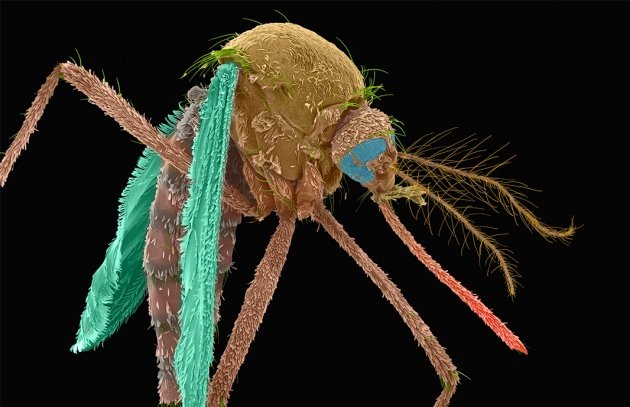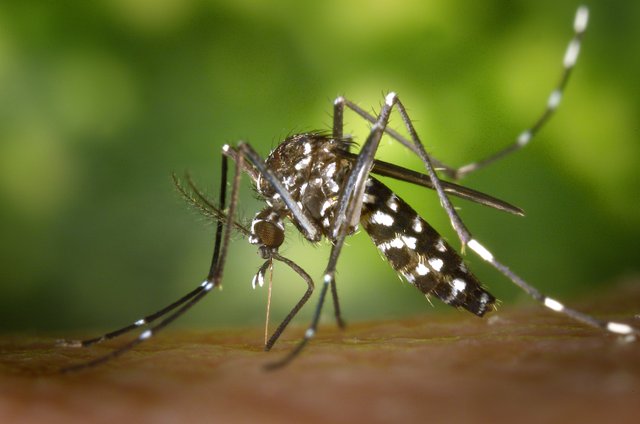EPA just approved the release of killer mosquitoes in 20 US States

I don’t have the power to read minds, but I am sure I can guess one thought you had: “why nature created mosquitoes? What’s the point?” I can’t answer that question as like you, I wish them gone, but today I want to report about a news regarding mosquitoes.
The US Environmental Protection Agency (EPA) has just approved the release in 20 US states of killer mosquitoes, engineered in a lab to eliminate disease-carrying mosquitoes.

Why?
Well it’s not that our institutions decided to finally join us in our crusade against nature’s most annoying creation. But their reasons are noble nonetheless. We have all heard that mosquitoes can spread disease. For the sake of spreading good information I want to clarify that mosquitoes themselves are harmless for us, but they can act as a carrier for blood pathogens. In fact, mosquito that bites an infected human or animal can pick up a virus along with the blood meal. The mosquito and virus do not harm one another but the virus reproduces inside the mosquito. Later, the mosquito can pass the viruses to other humans when biting them.
Here there is a list of pathogens/diseases that can be transmitted by mosquitoes’ bites:
- Zika virus
- West Nile Virus
- Malaria
- Dengue Fever
- Chikungunya
- Dog Heartworm
So what exactly are these killer mosquitoes?
The theory is that mosquitoes will be infected with a bacterium called Wolbachia pipientis and then males will be sorted from females. Then the laboratory males, which don’t bite, will be released at treatment sites. When these males mate with wild females, which do not carry the same strain of Wolbachia, the resulting fertilized eggs don’t hatch because the paternal chromosomes do not form properly.
Over time, with the constant release of infected males, the population of disease-carrying mosquitoes should dwindle without affecting other insects as there won’t be use of any chemical involved.
What criteria was used to pick the US states in which the killer mosquitoes will be released?
The EPA restricted the release of the killer mosquitoes to areas with a similar climate (temperature and precipitation) to areas in which the field trials were conducted. For this reason, these mosquitoes will be released in states like Kentucky, New York, California and Washington DC. The southeastern states were excluded despite having dense populations of mosquitoes and a long mosquito season, because of climate differences compared to the field trials.
This task will be assigned to a company called MosquitoMate (their killer mosquitoes are called ZAP males). This company has also plans to sell these mosquitoes locally. They envisage working with homeowners, golf courses, hotels etc. The issue with suppressing mosquito populations of entire cities is that it would require a weekly production of millions mosquitoes. Considering that the company’s technicians now separate them both by hand and mechanically, it may be challenging to generate enough killer mosquitoes to cover large areas.
We are not the first
There are other countries that started tackling this issue and have already experience with release on the field of killer mosquitoes. This practice has been used extensively in Brazil since 2015 due to the Zika virus epidemic.
China is another example, in fact Researchers from Sun Yat-sen University in Guangzhou are currently releasing 5 million killer mosquitoes each week in Guangzhou. They managed to increase the production of these mosquitoes by automating the sorting between male and females. They employ mechanical sorters to separate males from females, on the basis of size differences at the pupal stage, at more than 99% efficiency. The remaining mosquitoes are exposed to X-ray at a dose that can sterilize the females but that are too low to cause problems to the males.
I am curious to see if this experiment will work, unfortunately there are thousands of people affected by these diseases every year. Prevention may be better than scrambling to find cures.
Sources:
https://www.nature.com/news/us-government-approves-killer-mosquitoes-to-fight-disease-1.22959
http://npic.orst.edu/pest/mosquito/diseases.html
@cleverbot next summer is going to be a rough one.
Depression? Got some? Want some? I may have a little extra for you, if you'd like.
I can only imagine the unattended consequences of this.
img credz: pixabay.com
Nice, you got a 97.0% @bubbleburst upgoat, thanks to @aboutcoolscience
Want a boost? Minnowbooster's got your back!
Resteemed your article. This article was resteemed because you are part of the New Steemians project. You can learn more about it here: https://steemit.com/introduceyourself/@gaman/new-steemians-project-launch
Hopefully, it can't cause bigger problem to our health than those natural mosquitoes.
it looks very unlikely
Congratulations @aboutcoolscience, this post is the forth most rewarded post (based on pending payouts) in the last 12 hours written by a Newbie account holder (accounts that hold between 0.01 and 0.1 Mega Vests). The total number of posts by newbie account holders during this period was 1995 and the total pending payments to posts in this category was $574.43. To see the full list of highest paid posts across all accounts categories, click here.
If you do not wish to receive these messages in future, please reply stop to this comment.
Gardeners have been using some insects to repress other insects for a long time but they have never been scientifically altered to produce the desired results. I'm very interested in how successful this turns out and if the birds, fish, bats, etc will be able to find sufficient food sources after an attempted genocide of the disease-carrying varieties of mosquito.
They have been doing it in Brazil since 2015 and also in China for a while, I guess they are still alive. Obviously in every climate it's likely to have different effects but I guess the number of mosquito will only decrease slightly in these 20 states
I would be more concerned about all the pesticides that they use in the U.S. especially, that's really impacting the bees population and poisoning our food
I can't argue that! Some of the pesticides that they've been using are having some horrific unintended side effects. Bee mortality is only one of the more recent. The pesticides are very insidious in the larger ecosystem.